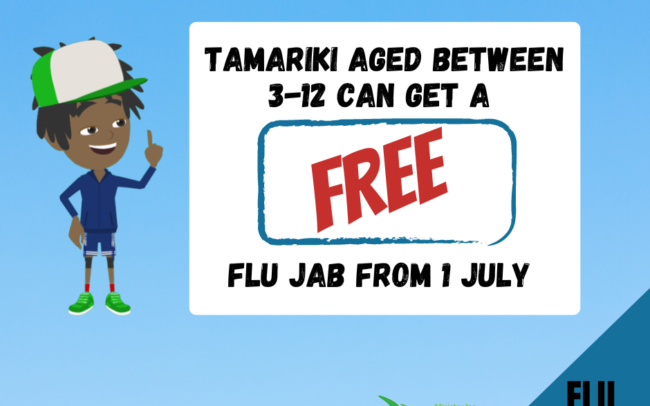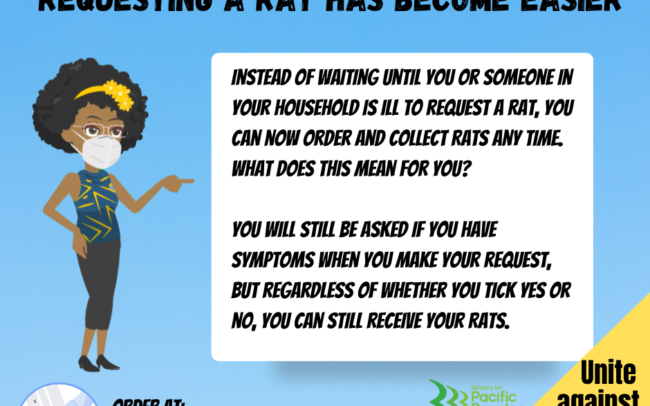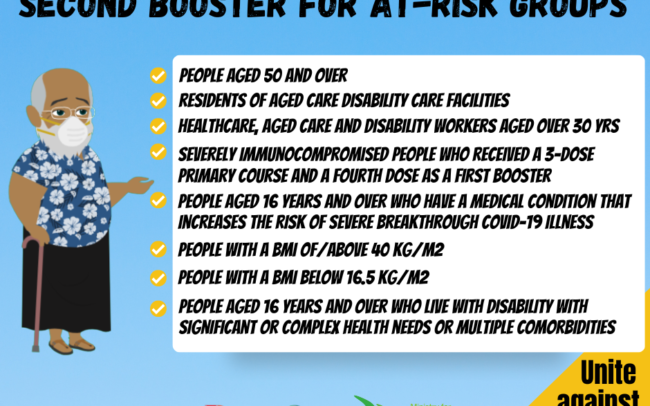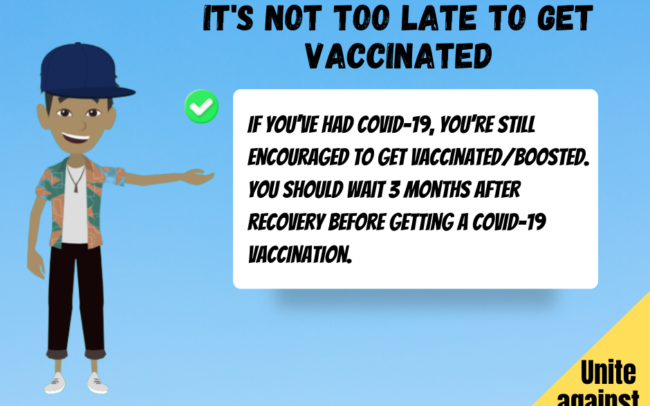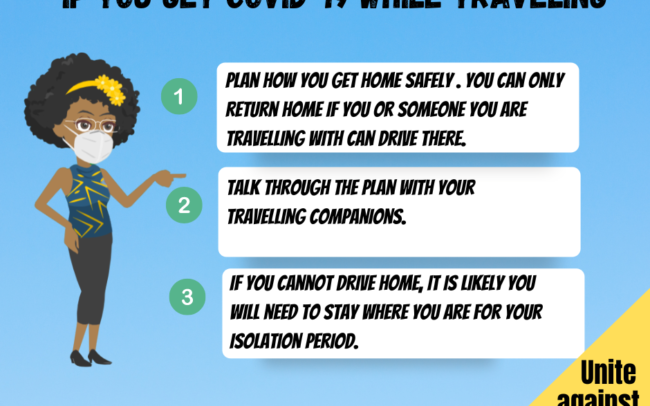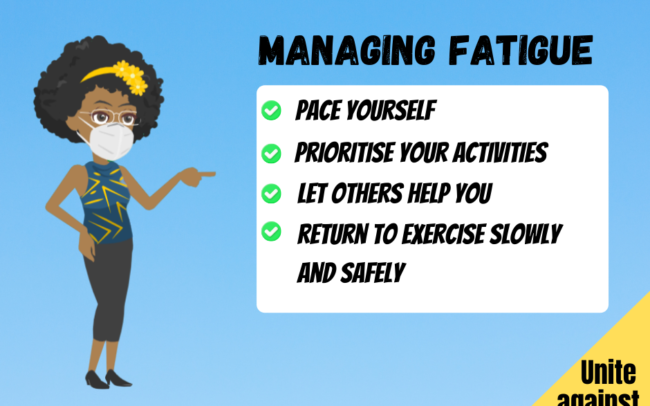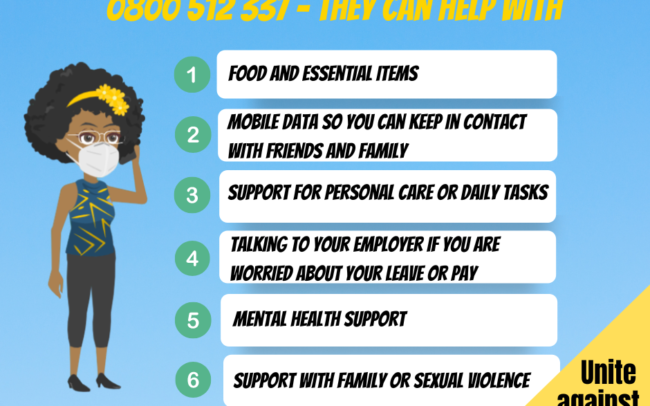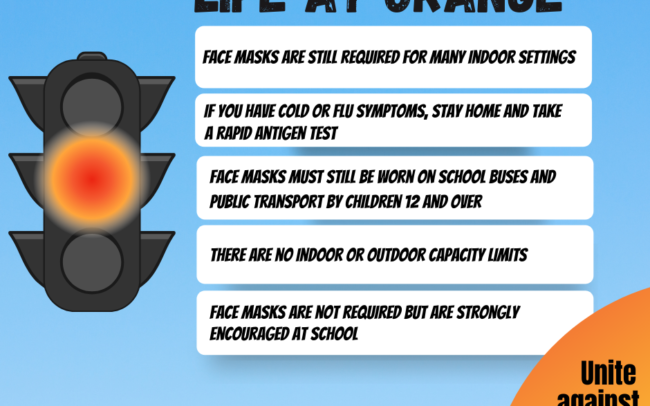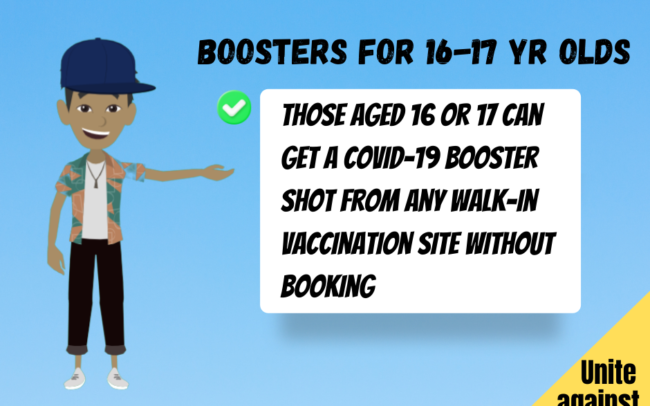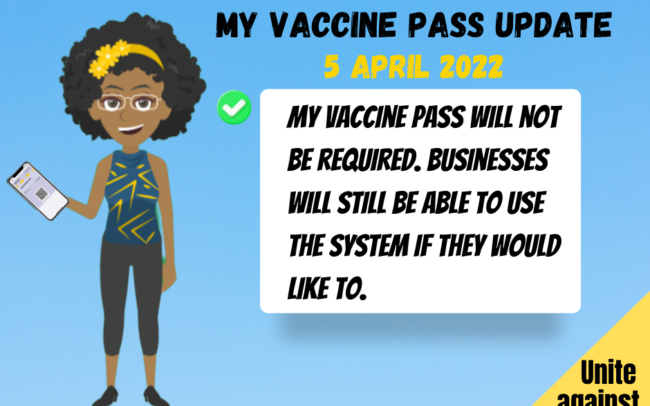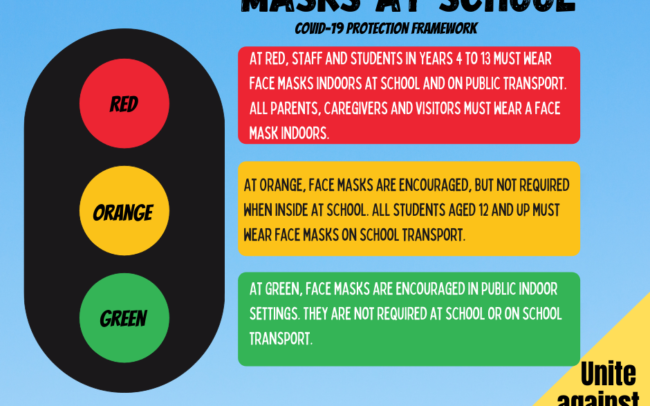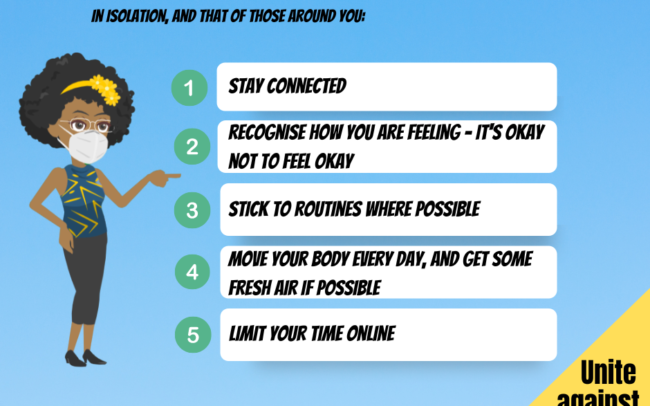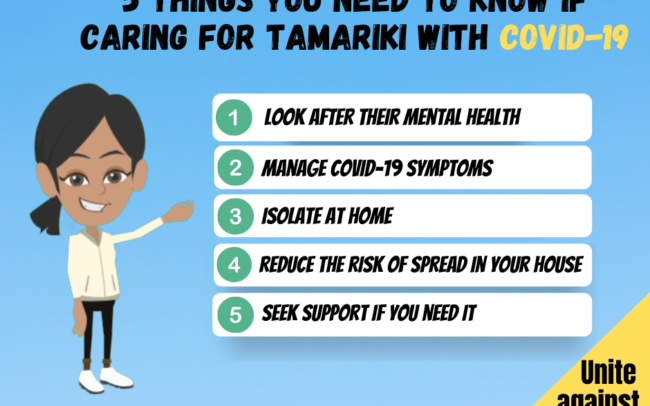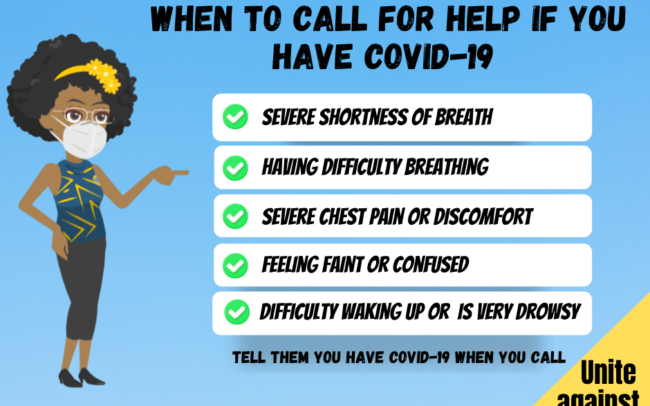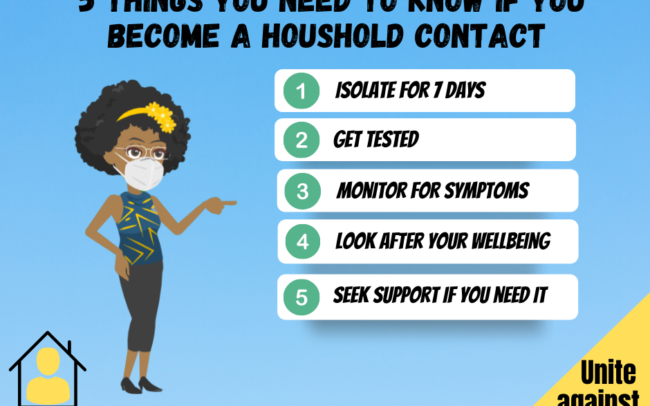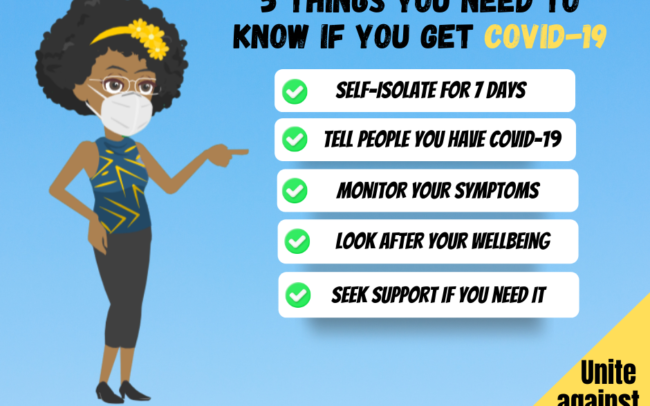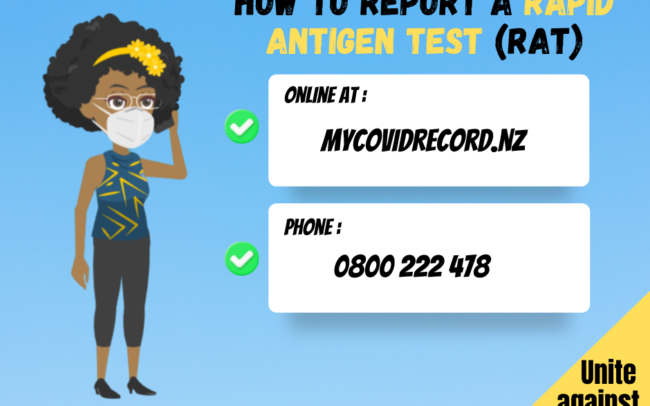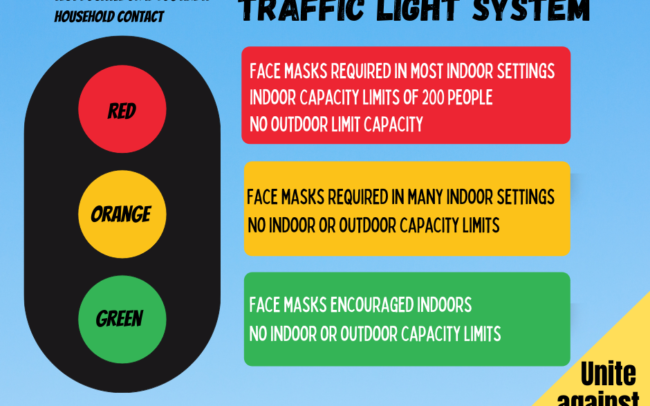COVID19 Pacific Health Information
Talking to your child about vaccinations
Talking to your child about COVID-19 vaccinations is the best way to make them feel at ease and relaxed. Getting an injection can be scary, so starting the conversation early can help make the experience more manageable.
In this video, we give provide tips and advice of how navigate through the vaccination process.
10 common questions for 5 to 11yrs regarding COVID-19 vaccines
Getting your children aged 5-11yrs vaccinated against COVID-19 can be stressful, so we have answered 10 common questions and concerns.
We answer questions like, does my child need a booster ?, is the vaccination the same dose as an adult ?, what is the wait time between doses ?, and many more questions like this.
Protecting those at high risk of serious illness
Our elderly, and those with underlying medical issues like cardiovascular disease, diabetes, chronic respiratory disease, and cancer are more likely to develop serious illness as a result of catching COVID-19. To protect our most vulnerable, we need to take the following into consideration:
1. Meet outside where there is better ventilation
2. Isolate away from them if you test positive for COVID-19
3. Offer to drop off groceries or essential supplies
4. Keeping in touch
5. Does their aged residential care have measures in place for visitors
6. Being kind and show compassion
When to get a vaccine booster
COVID-19 vaccines have been proven to slowly decrease its effectiveness over time, so getting a booster dose will give you greater immunity against COVID-19, including Omicron.
So who can get a booster dose?:
1. If you are aged 18 or over and are fully vaccinated
2. It has been 3 months since you completed your primary course
3. If you are aged 16 or 17 and its has been 6 months since you completed your primary course.
4. If you have had COVID-19, you can get a booster 3 months after you have recovered
When NOT to wear a face mask
Wearing a face mask has been proven to lessen the likelihood of contracting COVID-19, however there are situations where you do not need to wear one.
In this video, we give you the situations where wearing a face mask is no longer required, and we let you know how you can apply for a face mask exemption.
COVID-19 Pre-departure test to NZ
If you are starting your travels from the Pacific to New Zealand, you may not need a pre-departure test.
Under New Zealand’s COVID-19 Protection Framework, we give you the Pacific Countries where a pre-departure test is exempt.
Looking after yourself this winter
With winter now upon us, there is an increased chance of catching a virus, so it is important you look after yourself and those around you.
If you are feeling unwell, remember to:
1. Stay Home
2. Take a RAT test,
3. Wear a mask
4. Get your COVID-19 vaccinations.
After you have had COVID-19
After you have had COVID-19, it is important you continue to look after yourself and those around you.
It is important you ease into everyday life, this includes going to work, school, socialising as well as exercising.
If you are still having symptoms after your seven days isolation period, continue to stay home until 24 hours after symptoms resolve.
Caring for Babies with COVID-19
In this video, we provide important information when caring for babies with COVID-19.
Although some babies may display little or no COVID-19 symptoms, it is important we monitor their health closely and provide care to ensure baby recovers and returns to normal. If baby is unwell, has difficulty breathing or is only drinking half of what they normally would drink, then seek urgent medical attention.
COVID-19 Support Services
COVID-19 has hit Pacific Communities hard. In this video, we highlight the various support services that are available to you. These include financial aid, health and wellbeing needs, targeted support for students and whanau services.
If you are finding it hard to cope, please contact one of the support services immediately.
5 tips when preparing to self-isolate
So you or a household member has tested positive for COVID-19 ?, here are 5 tips to help you prepare when getting ready to self-isolate.
1. Make a plan for Food and Groceries
2. Consider your Health and Wellbeing
3. Consider your Medication and Prescriptions
4. Consider your living situation
5. Stay connected
Permitted reasons to leave isolation
If you are self-isolating, there are some reasons you can leave your home, and remember, you will need to social distance of at least 1.5m from others.
Keep in mind that, with the exception of exercise, you must always wear a mask
How to get a Rapid Antigen (RAT) test
Rapid Antigen Tests (RATs) are available for free if you develop COVID-19 symptoms or are a household contact of a COVID-19 case.
This short video explains how you can collect Rapid Antigen Tests..
How to report a Rapid Antigen test
Whether you test positive or negative, it is important to report the results of your Rapid Antigen Test (RAT).
Reporting your RAT results provide health authorities with information on the spread of the outbreak, alerts people to the support available to them, and helps keep critical services operating.
Protecting our children from COVID-19
COVID-19 has affected our Pacific families and communities. Here are a few simple things our children can do to help protect themselves and those around them from the virus. Video with Tongan translations..

